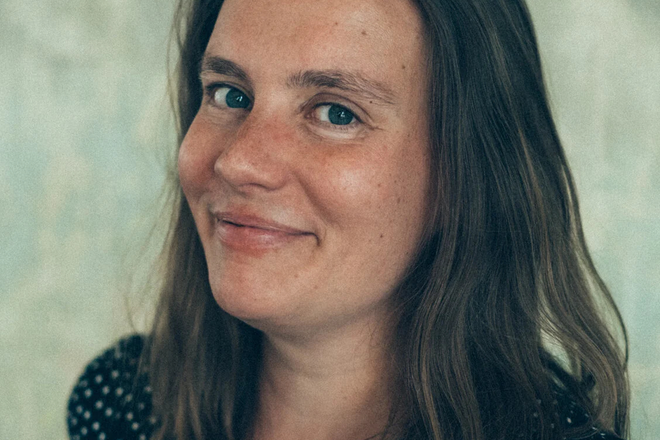Polish writer WERONIKA GOGOLA has been living in Slovakia for several years. She took a liking to the country in Prešov, eastern Slovakia. However, her Polish friends and family still do not understand why she moved to their southern neighbour.
"I hitch-hiked to Prešov, because at the time there were no direct lines across the border, and I don't know if things have changed. I remember that I had an iron in my backpack, that was how much support I got from my family. It's still like that today."
What she hears most from her Polish acquaintances about Slovakia is that it is a backward country and that there are many Roma. "Those are the reservations that come first. And also that asbestos is all over the place. I know it sounds harsh, but that's what they say."
However, Gogola likes Slovakia and says that she takes such reservations personally. She does not want to leave the country. "I know a lot of smart people who want to improve Slovakia. It annoys me all the more that in smaller towns like Bardejov, Rožňava or Humenné I know people who stay and work hard. I would regret packing up and leaving because of the people who want to make a difference."
Before you moved to Slovakia and settled in Bratislava, you studied in Prešov. How did eastern Slovakia resonate with you at that time?
I had been visiting Slovakia from early age. We mostly went to Bardejov or Stará Ľubovňa. It was different with Prešov though. I participated in an international conference while I was studying at a university in Krakow. That was my first visit.
What year was that?
I don't remember exactly, but I think 2013. It sparked my motivation to participate in the Erasmus exchange programme. It's hard to talk about my feelings, but I really liked the atmosphere of the town. It was similar to towns in Poland, but at the same time a completely different world. The first thing that caught my attention were the yellow street lamps. To me, it seemed very "socialist". I still take issue with them, they are all over Slovakia and it spoils the image of a town a lot. On one hand, I found them ugly, but on the other I felt like I found myself in an old nostalgic postcard. I was born in Nowy Sącz in southern Poland, a Slovak-like town especially when it comes to appearance. Now it has changed a little since then.
Did you experience something in Prešov that stuck in your memory?
I was positively surprised that I immediately ran into Rusyns. In Tarnów, the first big city near my native town, it was difficult to come across Rusyns. I met a barmaid who knew Rusyn songs, but claimed that she was not one. She also said she went to a Ukrainian high school, but she was not Ukrainian. I could not wrap my Polish head around that. I was confused and knew that this was exactly what I wanted to research. Later I found out that in eastern Slovakia, the Greek Catholic Church is quite widespread and the worlds are connected here. At that time, I was writing a diploma thesis about the Rusyns. There is a Rusyn theatre, which for me is also a world phenomenon. That is when I fell in love with Prešov.
You mentioned that after arriving in Prešov you felt like you were in an old postcard. Is that a good or bad feeling?
It was an alternate reality feeling. A person finds themselves in a place where everything is the same like in their home world, theoretically, but there is some kind of filter. Under their skin they feel that not everything fits the image they know from home, but on the other hand, everything feels like home. It fascinated me and it's a feeling I love. I have been living in Slovakia for a long time and I've become jaded a little bit, but the first time I felt such a duality of reality that it was almost physical.
You mentioned that the town you in which you grew up was Slovak in a way. What do you mean?

